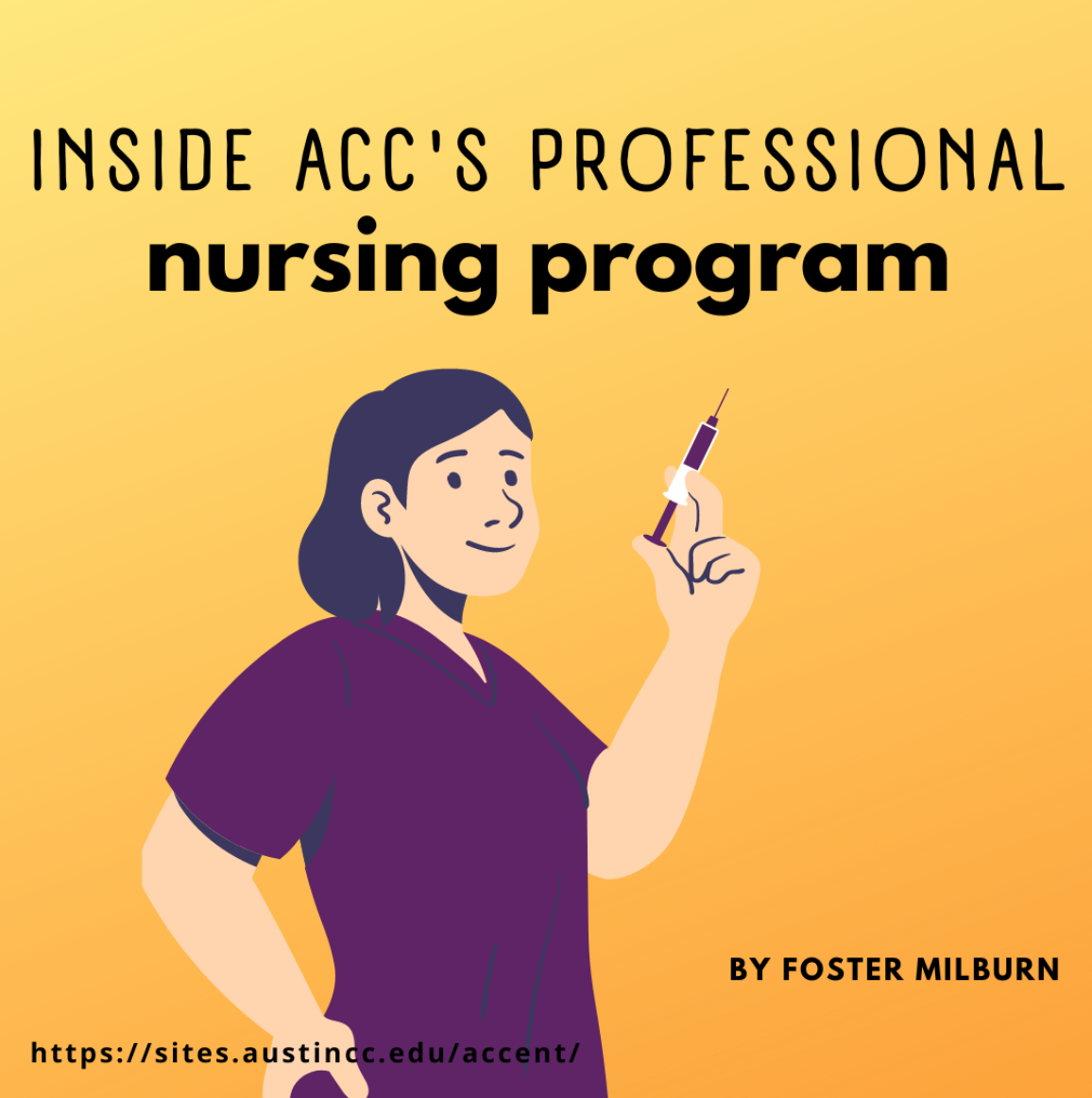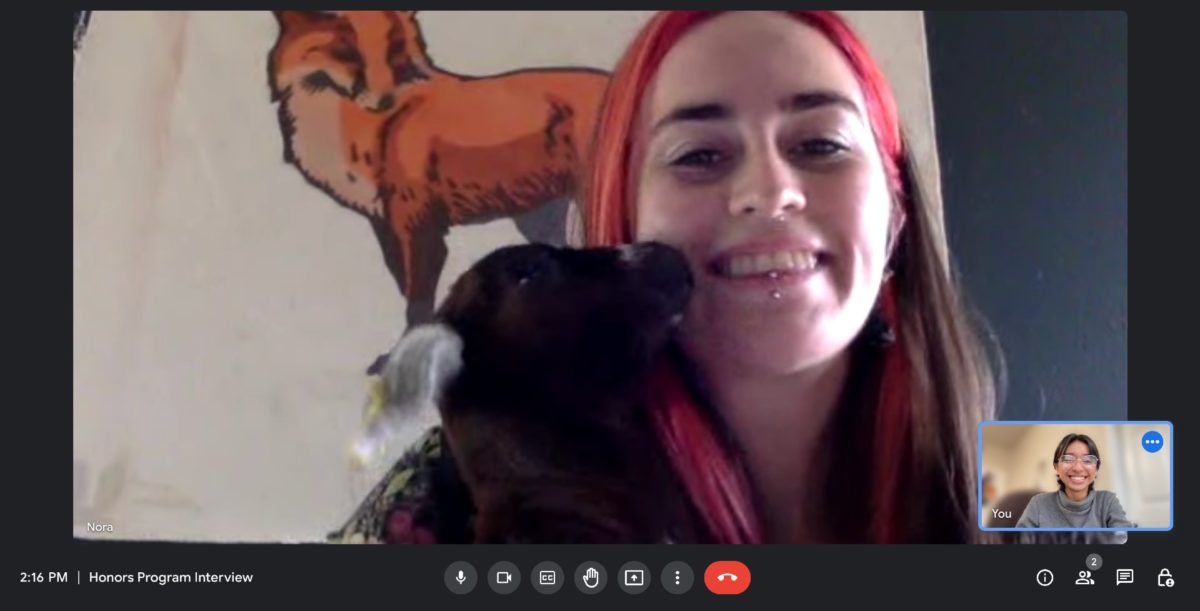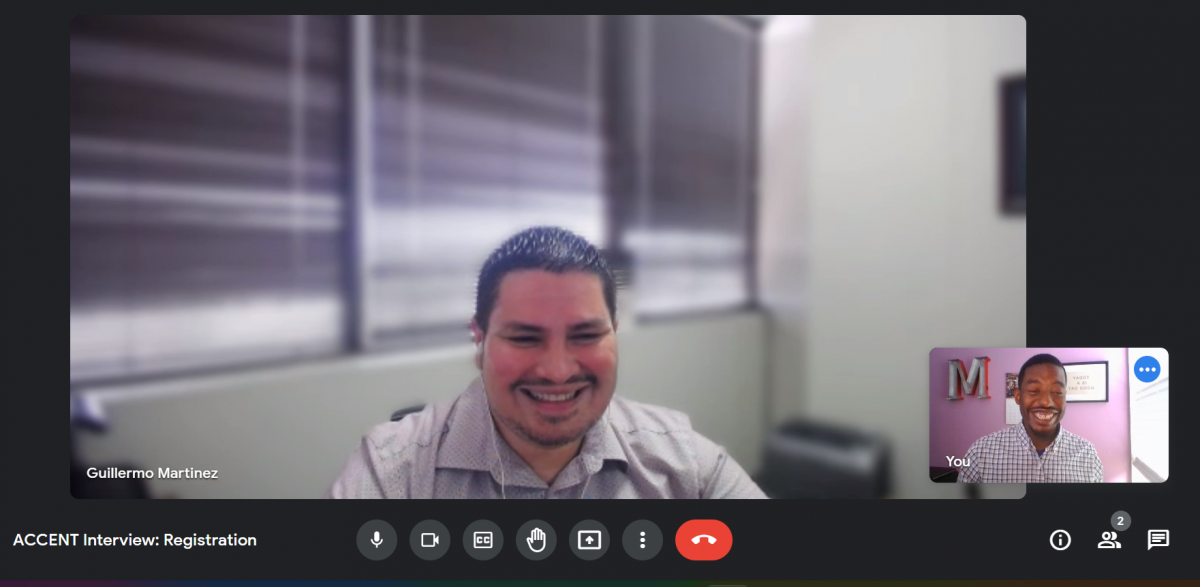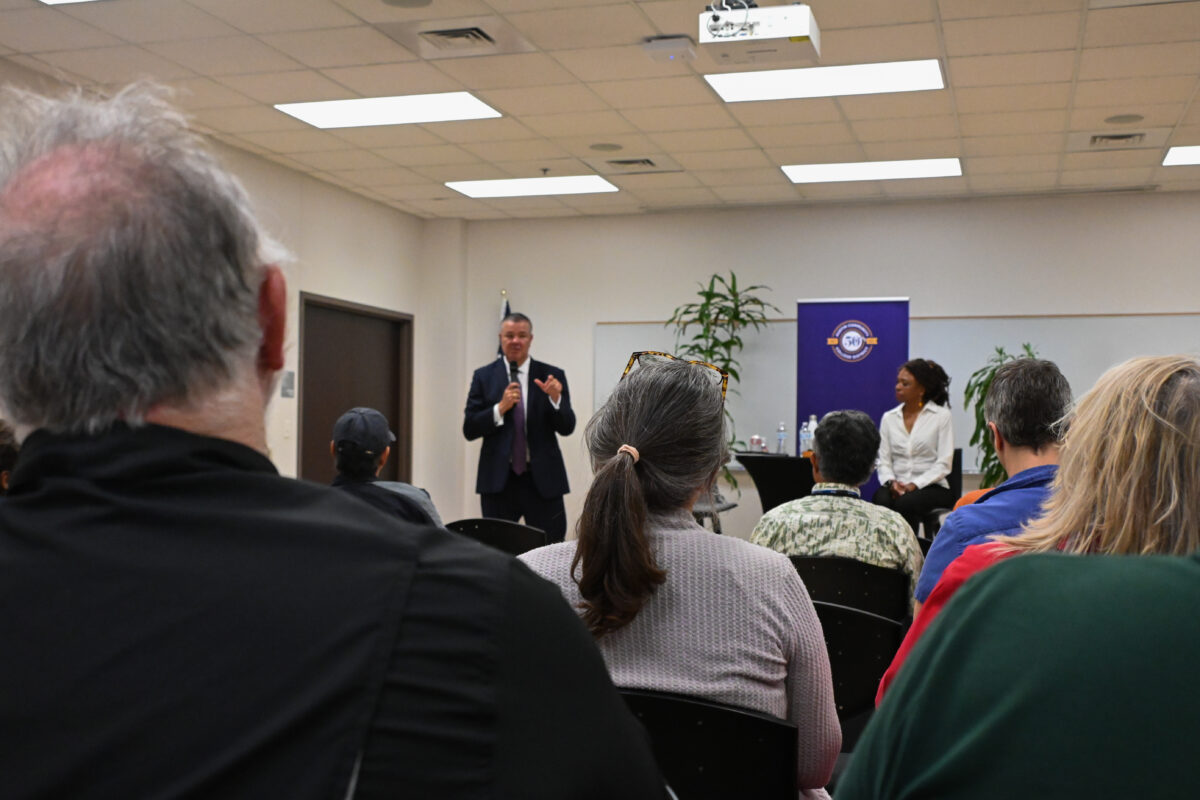Category: Campus News
-

Inside ACC’s Professional Nursing Program
The Health Sciences department at ACC has a profound reputation in Austin. by Foster Milburn Graphic by Claudia Hinojos Health science students at Austin Community College are prepared for the fast-growing healthcare industry as the college offers a flexible education pathway, realistic hospital settings, and a high state pass rate. A career as a registered…
-

The Honors Program: curiosity and critical thinking
Spring semester is around the corner, meaning students are taking the important step of making their schedule before registration ends on Jan. 3. What many students are not aware of is that their classes can improve significantly by enrolling in an honors course —which no, is not part of an elite society— but an academic…
-

Computer Science Club Highlight
Story by Nathan Lu Graphic by Claudia Hinojos When first enrolling in Austin Community College, very few students recognize the importance and benefits of joining a student organization. Although it may appear that spending numerous hours in meetings is a waste of time when other obligations such as school, work, and family take precedence, joining…
-

Get Ahead On Your Degree Plan By Taking ACC’s Summer Classes
Registration for the 2022 summer semester began on April 4 for all current or returning Austin Community College students. As of April 18, new students can register as well. Written by Morris Haywood Edited by Pete Ramirez ACC will be providing over 2,400 open sections across eleven campuses this summer so students can continue their…
-

How To Write A Successful Scholarship Essay
Scholarships are the easiest way to receive financial help when it comes to college. Austin Community College’s fall 2022 semester deadline for their general scholarship application is May 1. Written by Jonathan D. Gonzales Edited by Pete Ramirez With ACC’s general scholarship, students can be considered for more than one hundred different scholarships by submitting…
-

Explore Inside Austin Community College’s Dental Hygiene Program
Dental hygiene is a growing field and in high demand in Austin. With the goal of producing competent entry-level dental hygiene professionals to meet the market requirements, Austin Community College’s Dental Hygiene program strives to provide future dental hygienists with the best education and training program in town. ACC’s Dental Hygiene program is proud to…
-

Black Voters Matter Tour Visits ACC
On February 16, 2022, organizers from Black Voters Matter visited Austin Community College’s Highland campus as part of their Campus Blackout Tour. The outreach tour across Texas aimed to educate and register young voters ahead of the recent March 2 primary election. The weeklong bus tour began in Houston, Texas on February 14 and ended…



